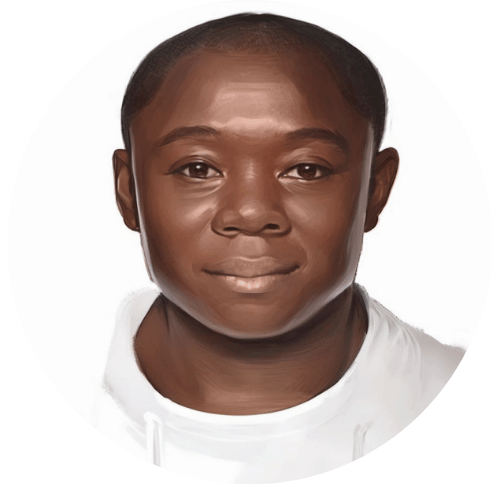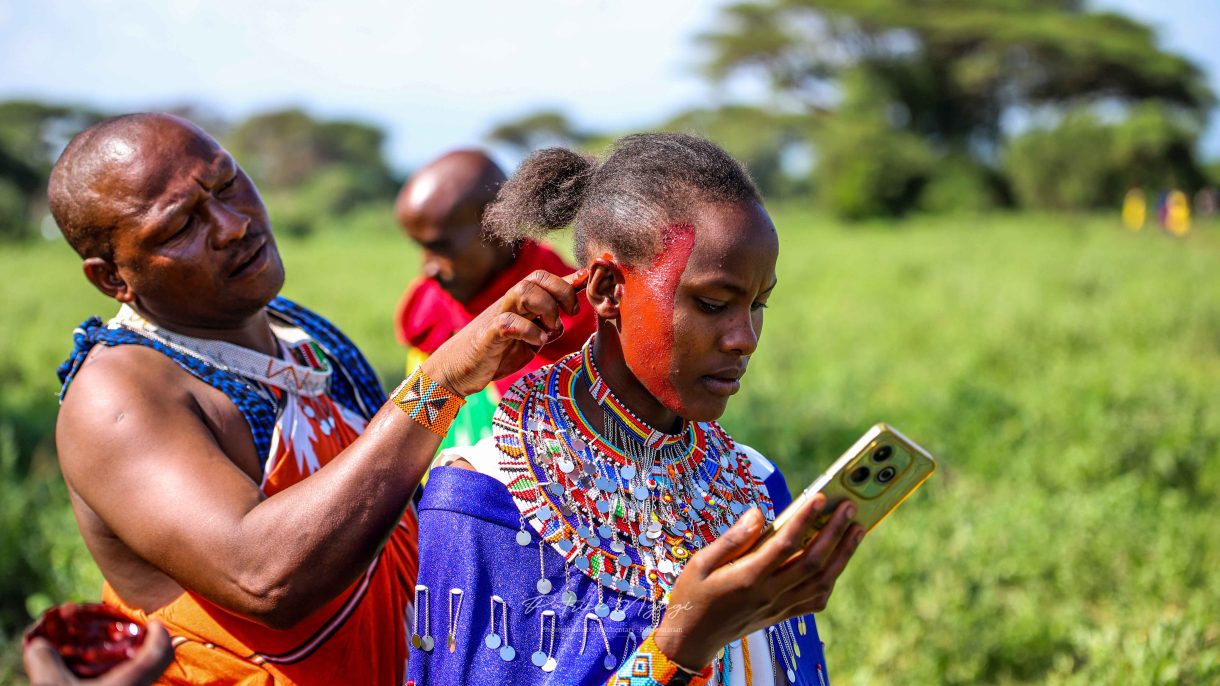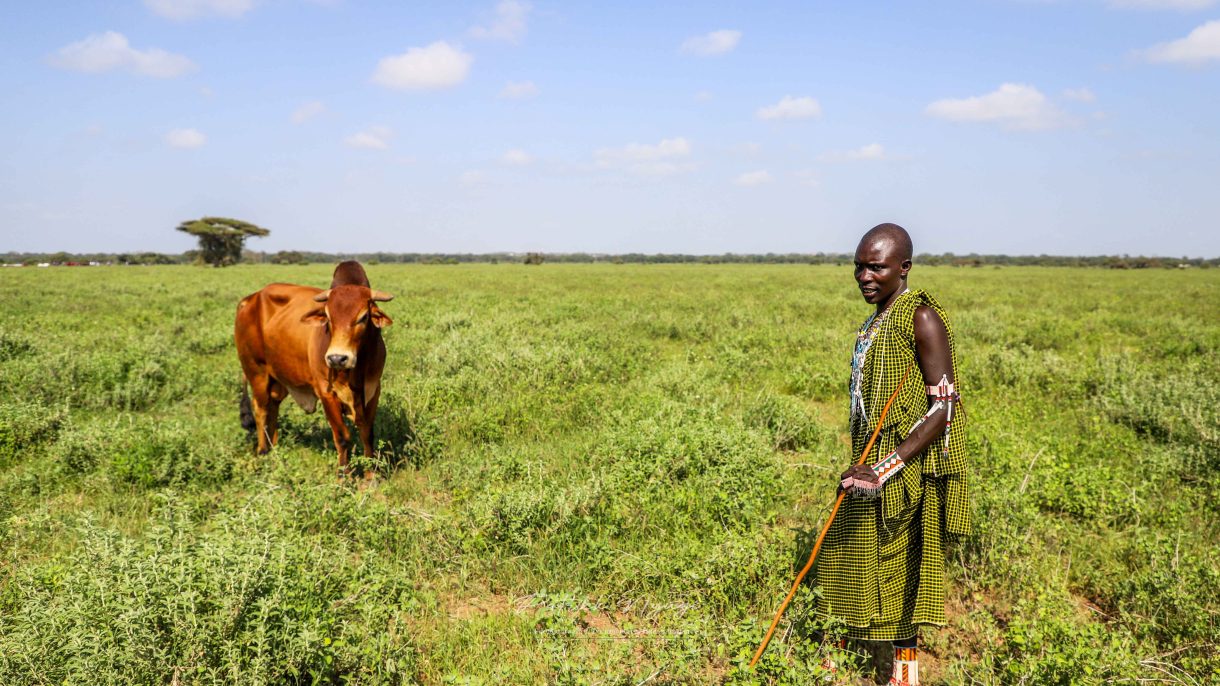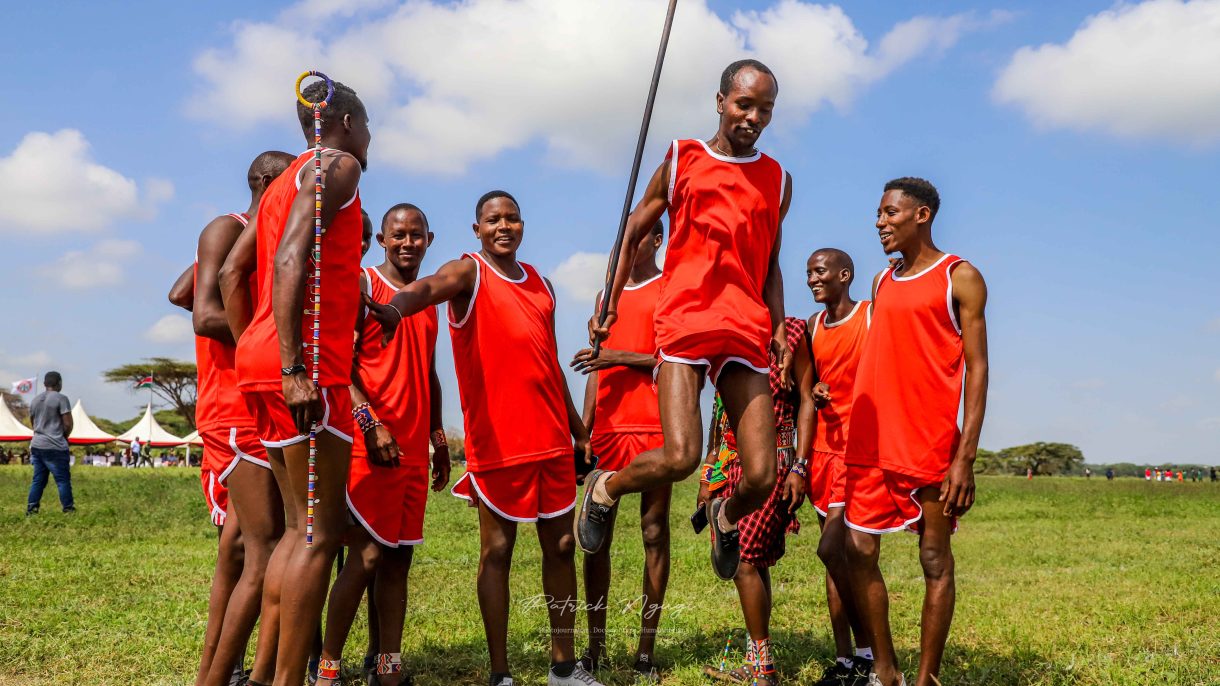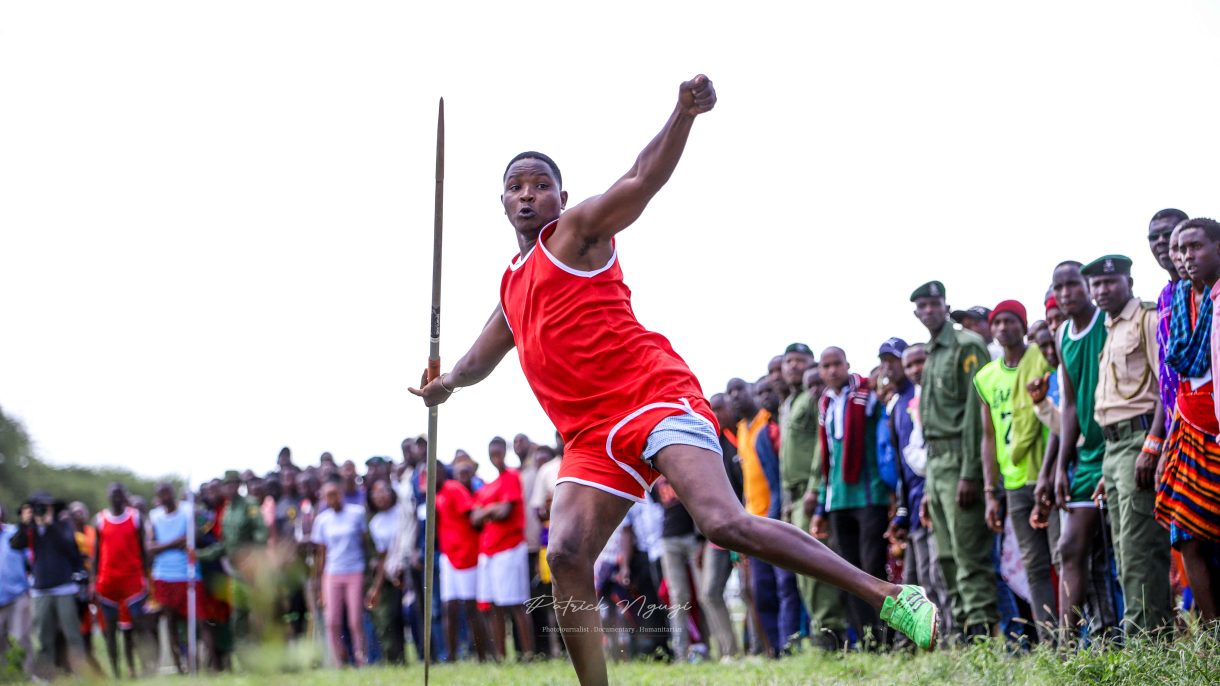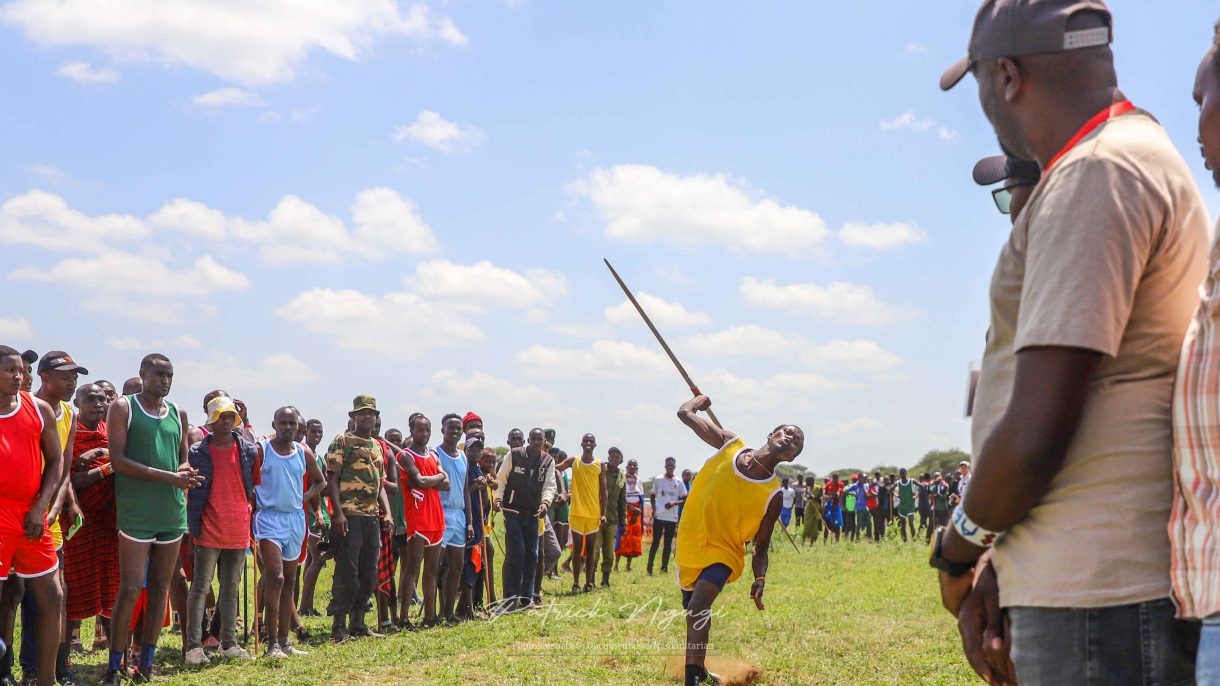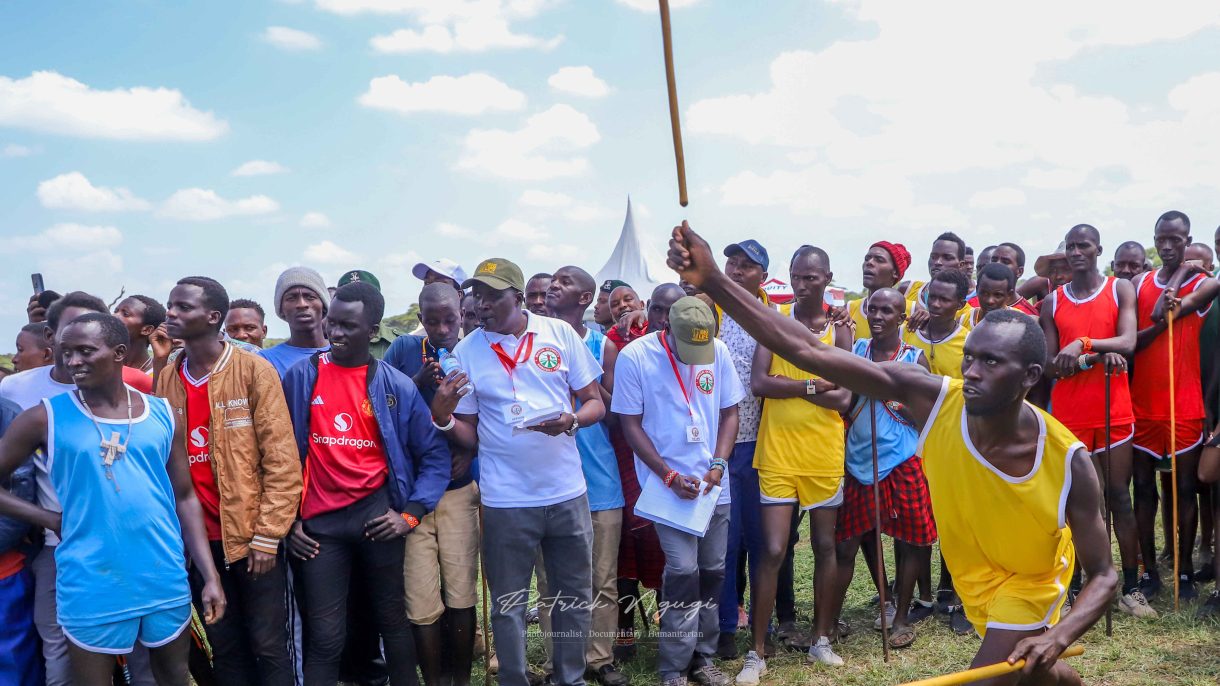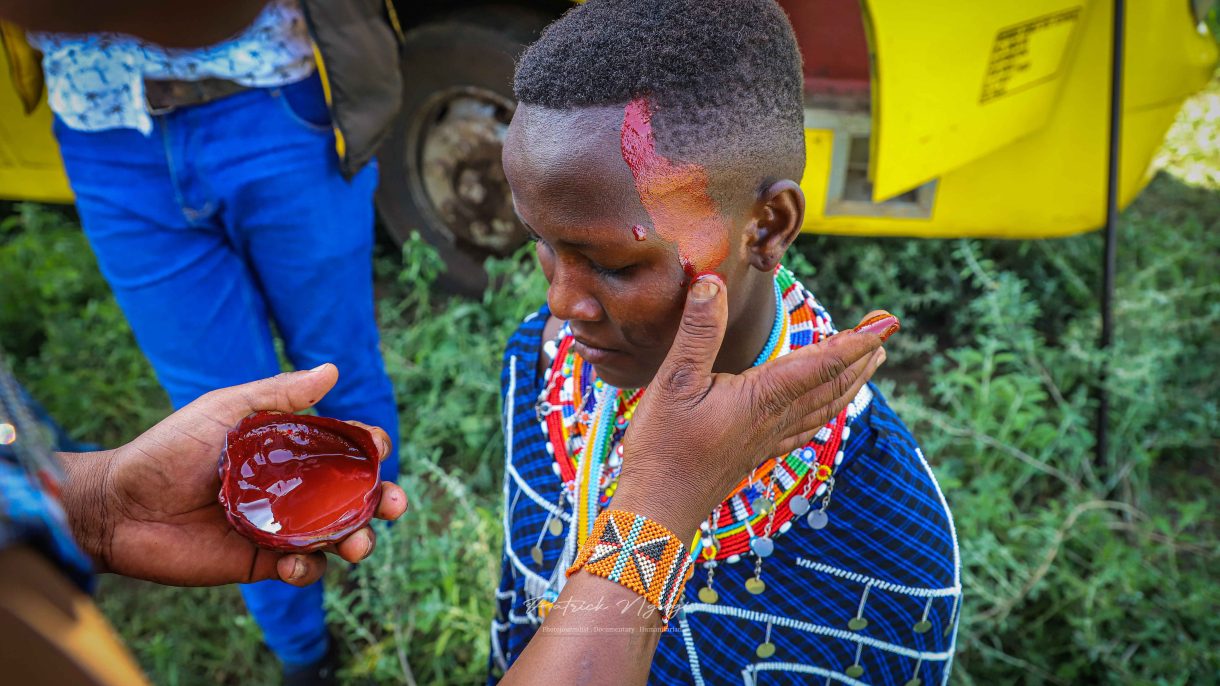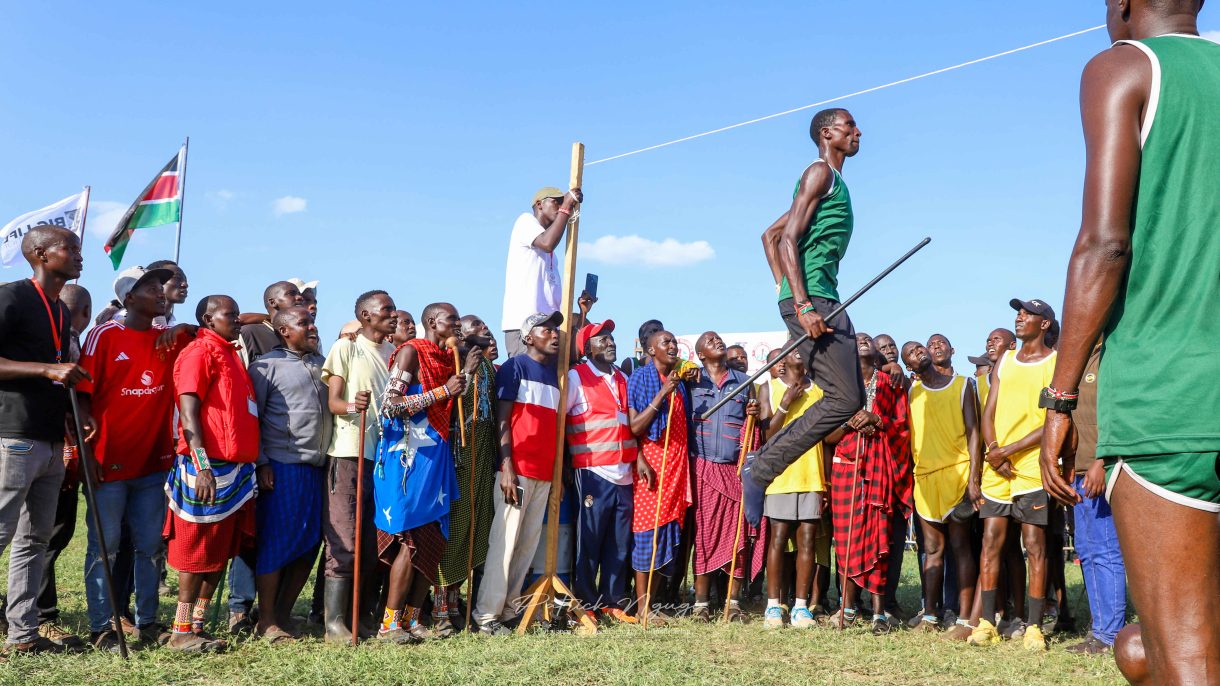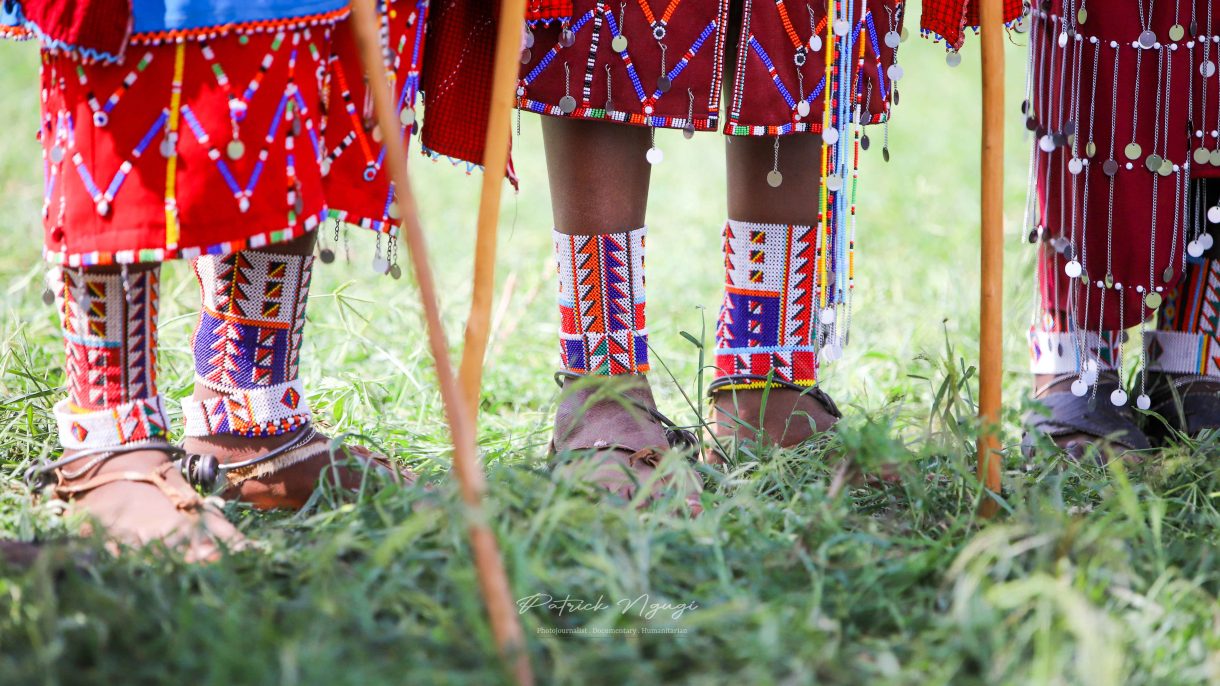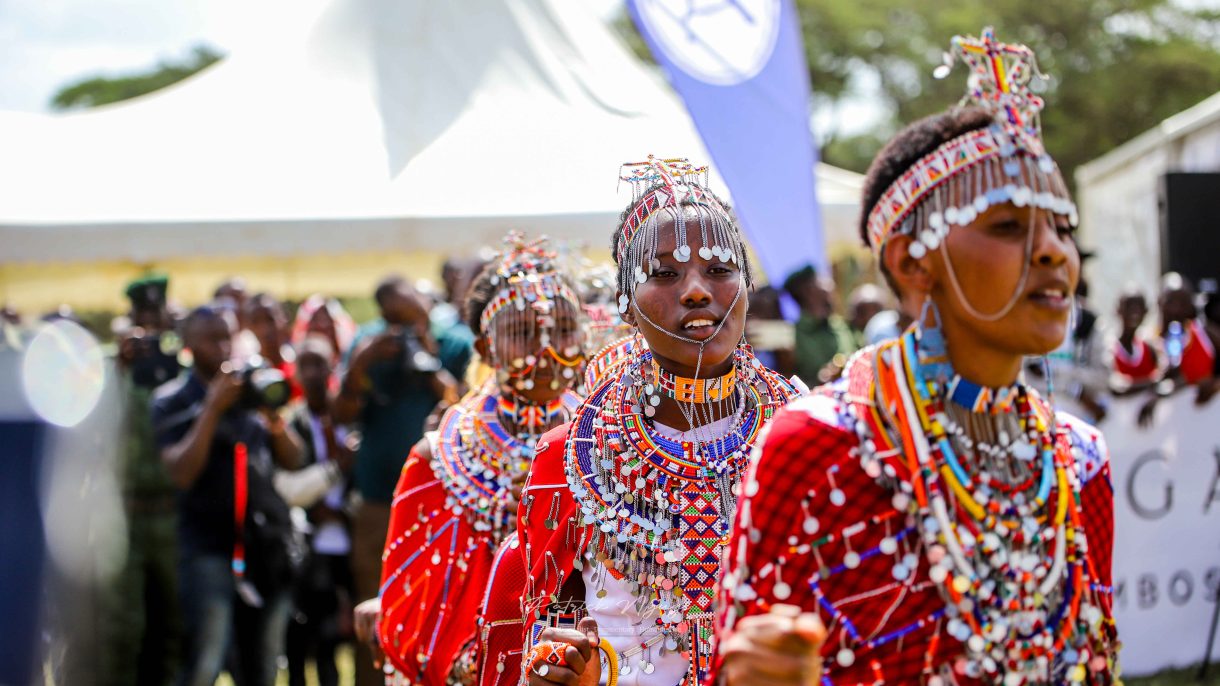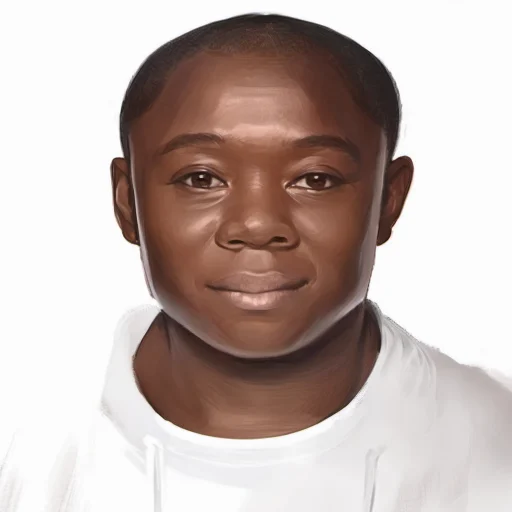At dawn, the snow-capped peak of Mount Kilimanjaro rises majestically over the small town of Kimana. Its grandeur is a quiet reminder of the enduring spirit of the land and its people. I arrive at the Kimana Sanctuary, home to the annual Maasai Olympics, a groundbreaking event that replaces a centuries-old tradition of lion hunting with athletic competitions.
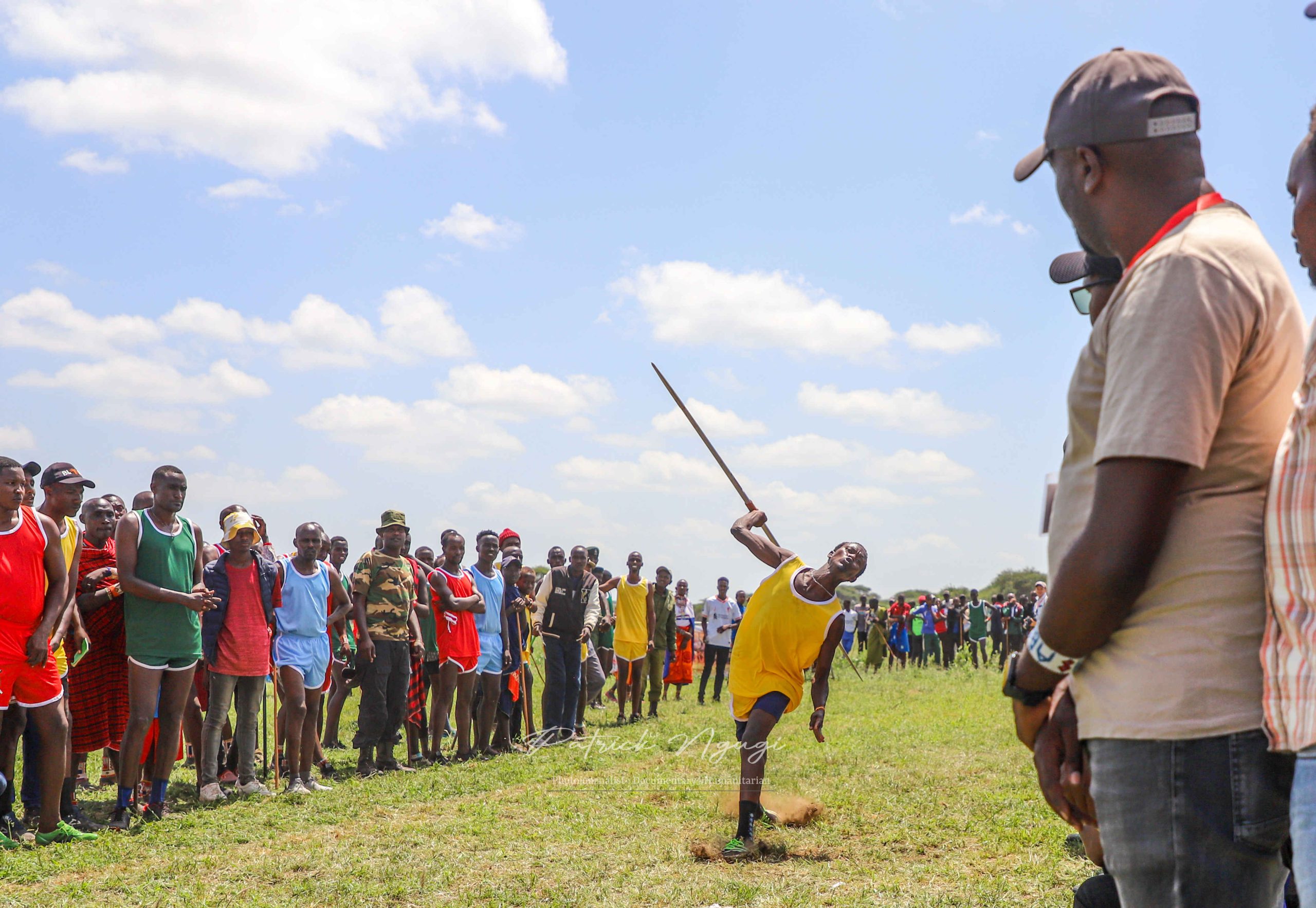
The Maasai, renowned as Africa’s most iconic tribe, have long been celebrated for their bravery and warrior culture. Yet, this tradition came at a high cost, both for the lions and the delicate ecosystem they inhabit. The Maasai Olympics, established in 2012, represent a transformative shift in how the Maasai morans (warriors) demonstrate their might and prestige. Instead of hunting lions to mark their passage into manhood, they now compete in events that highlight their traditional warrior skills, all while embracing conservation.
Mount Kilimanjaro is the Witness today
The journey to the event is striking. I cross acres of bean irrigation farms before arriving at the sanctuary nestled near a seasonal river, its culvert straining under the weight of silt. The Maasai’s vibrant shukas and intricate beadwork stand out against the dry savannah landscape. Here, tradition meets modernity, as warriors prepare to compete, not for survival, but for glory and conservation.
The day begins early. Groups of Maasai huddle over steaming bowls of soup, having traveled from their manyattas (villages) to spend the night here. The scent of roasted meat lingers in the air, a nod to their deep cultural ties to cattle. But today, the focus is not on feasting; it’s on proving themselves in the arena.
Maasai faces Dressed with the spirit of Competition.
Four manyattas; Kuku, Mbirikani, Eselenkei, and Rombo compete for the top prize: a breeding bull, a symbol of wealth and prestige. Each village dons a different color, their warriors exuding energy and determination. The events kick off with the 200-meter races, where Rombo takes an early lead. The crowd cheers wildly as Joseph Lekatoo, a 34-year-old veteran of the games, dominates the javelin and high jump events.
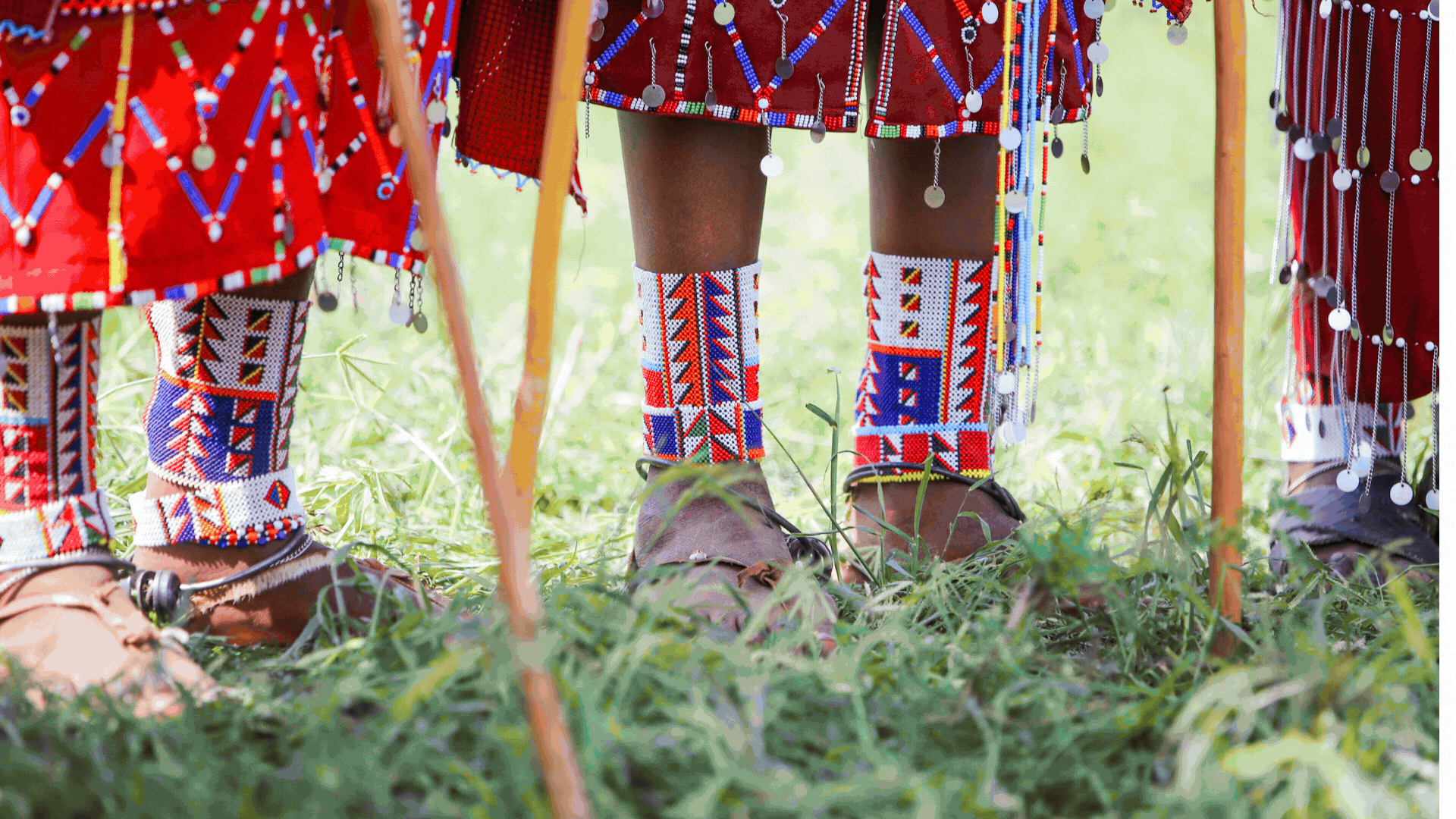 “The Maasai Olympics keep us busy,” Lekatoo says, clutching his two new medals. “It’s no longer about who can kill the most lions. It’s about competing for medals and cash prizes, and protecting our heritage.”
“The Maasai Olympics keep us busy,” Lekatoo says, clutching his two new medals. “It’s no longer about who can kill the most lions. It’s about competing for medals and cash prizes, and protecting our heritage.”
For Lekatoo, the event is more than just a competition. It’s a powerful reminder of the importance of conservation, a cause championed by Big Life Foundation, the organization behind the Maasai Olympics. As lion populations dwindle due to habitat loss and human-wildlife conflict, this initiative offers a way to preserve not only the lions but also the Maasai way of life.
An Olympic event set with deep roots in Traditions.
Each event reflects the traditional skills of the Maasai warriors. The rungu (club) throwing competition showcases precision and strength, while the high jump; a unique Maasai tradition; demonstrates agility and grace. In the long-distance races, endurance takes center stage, mirroring the stamina required of warriors who once roamed these plains.
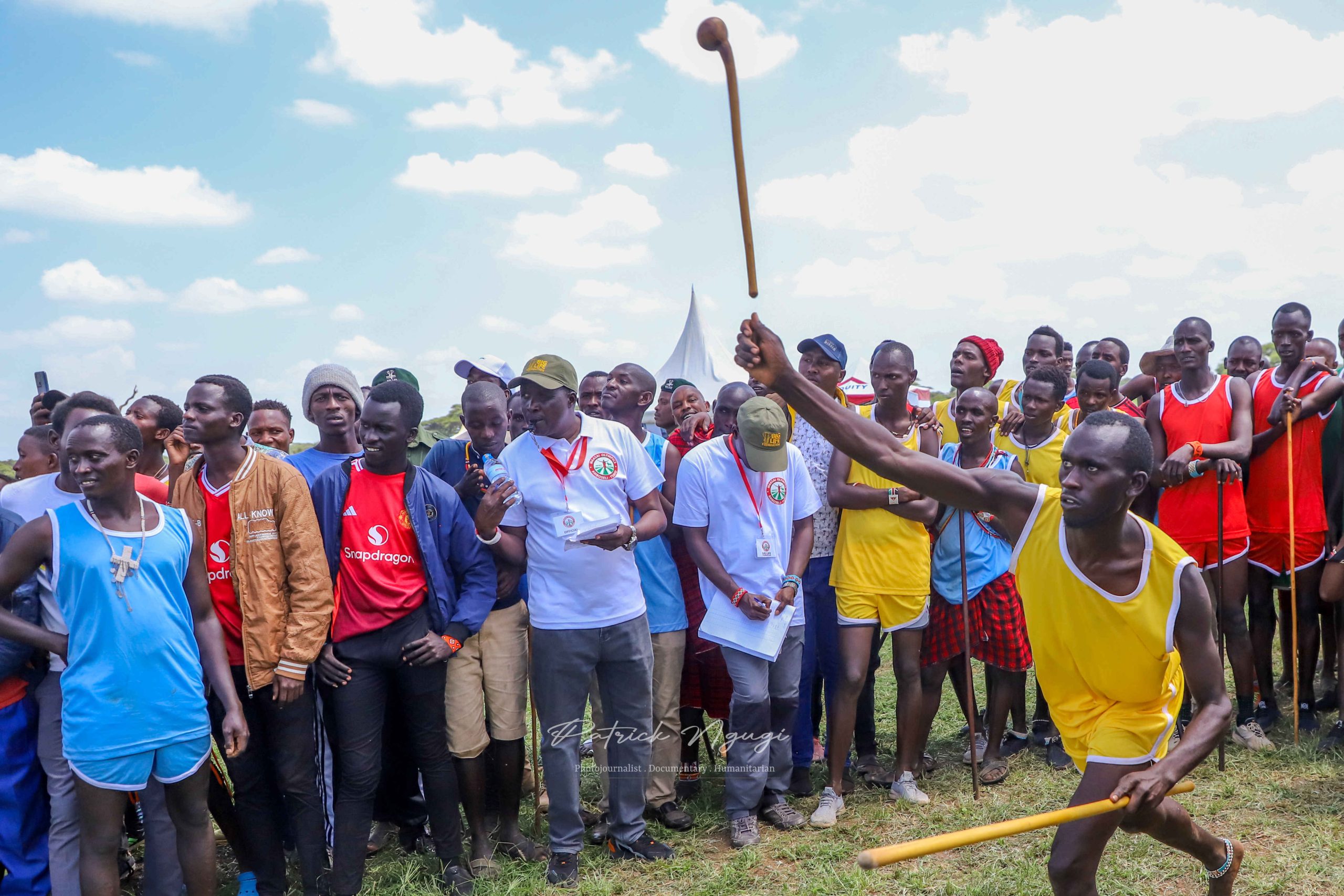
As the sun blazes fiercely overhead, the warriors push themselves to their limits. The roar of the crowd rises with every victory, their excitement palpable. The atmosphere is electric, a blend of camaraderie and fierce rivalry.
A New Tradition Takes Root among the Maasai
The Maasai Olympics are more than just a sporting event, they are a celebration of resilience, adaptability, and hope. By replacing lion hunting with athletic competition, the Maasai have found a way to honor their traditions while embracing a sustainable future.
The event also fosters environmental stewardship. Beyond the thrill of competition, participants and spectators learn about the importance of protecting their land and its wildlife. Conservation is no longer an abstract concept; it’s woven into the fabric of the Maasai culture.
The Future of the Plains of Amboseli
As the games draw to a close, the warriors disperse, medals glinting in the late afternoon sun. The breeding bull, the ultimate prize, stands as a symbol of the Maasai’s commitment to their heritage and the environment.
Standing under the vast African sky, I am struck by the significance of this event. The Maasai Olympics are not just about winning medals, they’re about preserving a way of life, one that celebrates bravery, community, and the delicate balance between humanity and nature.
For the Maasai, the hunt for medals has replaced the hunt for lions. And for the lions, this shift may just be their saving grace.


